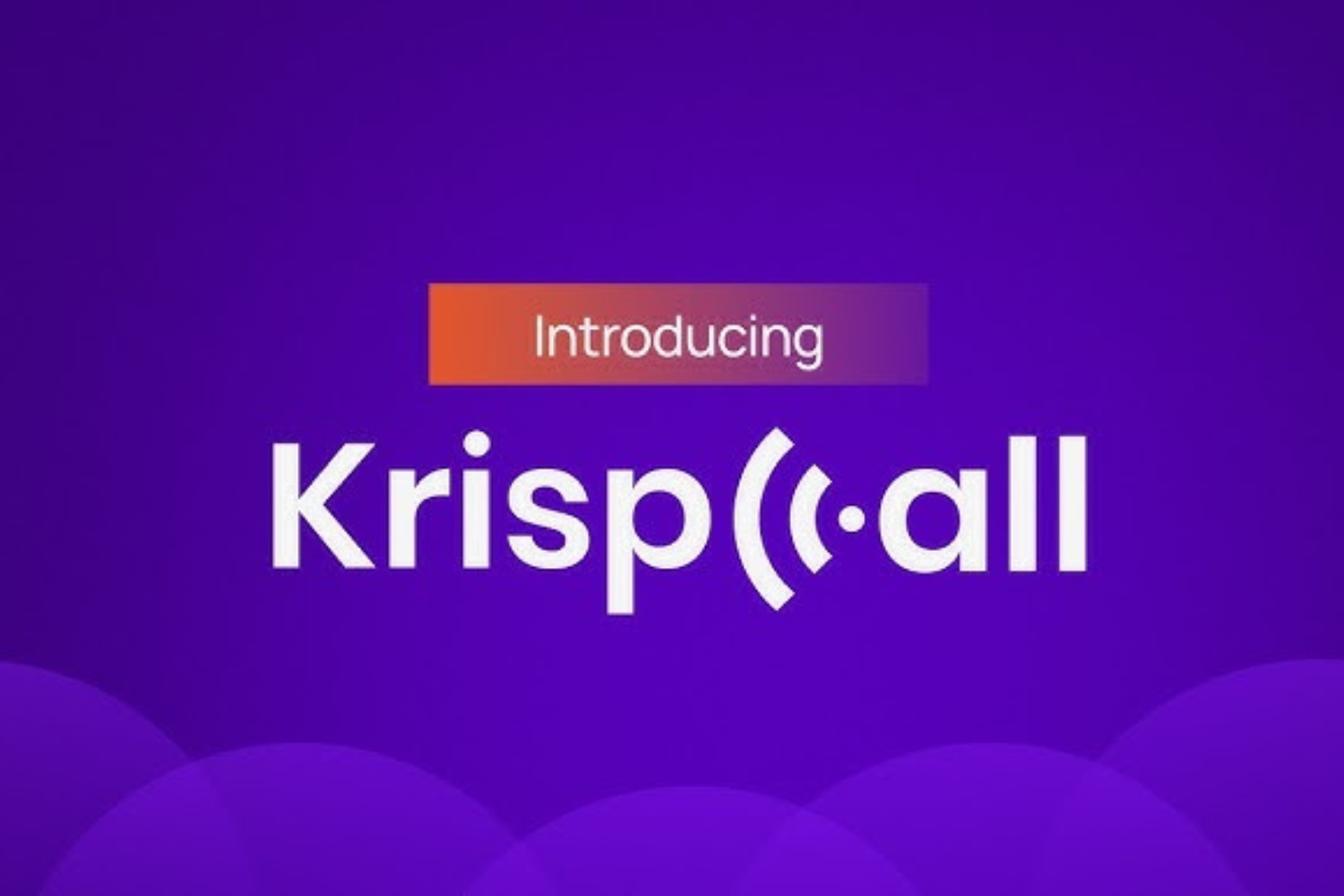Yes, blogging mistakes can happen to just anyone — even our very own professional bloggers make them from time to time. So, this is nothing to fear coming out on and asking for help from those who have been down that road. That said, business blogging is an amazing way to bring traffic to a company website, build rapport with the audience and generate leads.
Every business, big and small, should include blogging as part of its content marketing strategy to make money with its marketing efforts. A HubSpot study reveals blogging businesses can generate 126% more leads than the ones that don’t. This blog will share the topmost best blogging mistakes that businesses make and how to avoid them.
We’ll also discuss how using social media, specifically, Instagram can be a game-changer with strategies like how to buy Instagram likes and more. So, do you want to step into one of the fastest-growing online industries? Are you looking for a sustainable income stream as a writer? Well, your search will come to an end because of our precise set of blogging tips.
For those new, Business Blogging refers to writing blogs or articles and publishing them over a specific website or platform. You can say that it is a modern form of writing diaries that we did in our childhood. Now, our daily diary notes have been converted into blogs that will be shown to people to get an idea about your experience and point of view.
Why Knowing Blogging Mistakes Is Important
There are many reasons why knowing some common blogging mistakes matter in content writing for many bloggers. Like forgetting about your target audience, and not setting up your web hosting and site correctly. Or, ignoring SEO and keywords in the content creation process., writing blog content without proper formatting, skipping social media promotion, etc.
Not only that, but one of the biggest mistakes new bloggers make is starting without a clear goal. Perse, you don’t need to have everything figured out from day one (no one does), but having a general direction allows you to be more intentional with your time and creative energy. No sense in building a luxury skyscraper when you really want a cottage by the lake, right?
In reality, the website blog that you’ll make will usually look very different depending on your desired outcomes. Whereby, some bloggers start a blog to promote an existing small business or product. But, all in all, considering that companies that blog get 55% more website visits, blogging can be a great complement to your other marketing efforts.
Similarly, others get into blogging to become their own boss and make money online. In fact, a 2020 study of over 1000 bloggers found that about 16% started blogging to become self-employed, and 12% did it to earn more money. But, the most common reason people blog is that it’s fun! That same study found that over 24% started it as a creative expression outlet.
The Most Common Blogging Mistakes & How To Avoid Them
As you can see, all of the above are valid reasons to start a blog, yes. But, your priorities will differ if you’re blogging as a hobby, marketing strategy, or income opportunity. That said, before you commit, think about what you want to get out of blogging. What does success look like for you? Having a goal will prevent you from getting lost in the weeds down the line.
Generally speaking, the only aim to write this article is to tell you about how to be successful being a blogger. It is a common issue in the writing field not to find buyers and fed from this field. If you are a proficient writer, you can step into the blogging field and get a handsome income just by writing blog articles or web posts and publishing them properly.
Related Resource: 15 Best Blogging Tips For Beginner Content Writers To Be Successful
In this regard, you must have an idea about blog writing techniques to draft something that people like. It is because you should have to engage your audience for a longer time to get ranked in SERPs and generate a prominent income from your skills.
Whenever you will ask someone about blogger tricks and want to know how to be successful, they will definitely tell you about SEO tips for blog posts. No doubt, SEO is the backbone of ranking in SERPs of any website. You can’t rank in a search engine without proper optimization of a website and having a deep look at the layout of the blog.
Additionally, you should have to keep some Do’s and Don’ts in your mind when it comes to learning tips for new bloggers. In the following section, we are going to show you those tips briefly for making your blogging career successful.
Here is the breakdown:
- Wrong Domain Name
- Inconsistent Blog Publishing
- Inadequate Content Managers
- Irrelevant Curation Topics
- Not Backlinking Content
- Shallow Writing Ideas
- Limited Creative Teamforce
- Outdated Blog Content
- Not Tracking Performance
- Without Focus Niches
After setting up your blog, you can dedicate a weekend to watching tutorials, learning about plugins, and reading up on website configurations. In addition to avoiding some of these common blogging mistakes down below.
1. Wrong Domain Name
It’s tempting to rush through the blog setup process, but it’s best to take your time and sort out all the technical stuff from day one. If you’re hoping to blog professionally, you’ll need to choose a blogging platform that supports your ambitions. On that note, the two most popular options are WordPress and Squarespace which you can give a try for free.
Suffice it to say, WordPress is used for over 42% of all web pages and is widely considered the industry blogging standard. Next, you’ll need to choose and buy the right domain name and set up hosting. Essentially, hosting is rented space on the internet where your blog lives, with popular providers like Bluehost and SiteGround starting at less than $10/month.
Many businesses pick a domain name without paying close attention to what their brand should be known for, who their target market is, and what services they will be providing. This is a big mistake. Your domain name should be relatable to your niche, brand, and your audience. Also, short domains are easy to remember.
If your website makes it to the SERP results, very few people are likely to click through and land on your website because of an irrelevant domain name.
2. Inconsistent Blog Publishing
More often, brands and businesses are not publishing frequently or regularly which diminishes their chances of getting search traffic to your website. Google bots crawl a website more often if it publishes fresh content regularly. This will tell Google to rank the blogs of the website for the relevant search queries.
Publishing valuable content regularly will keep your readers engaged and connected with your brand. They will seek your expert opinion about certain topics or issues. Blogging is an effective way to share your expertise with the audience and build rapport with them, ultimately making more money online.
If you already have an audience, periodically send out surveys to learn about their interests and pain points. Of course, there’s nothing wrong with occasionally sharing life updates and quirky interest posts, but the bulk of your content should help, inspire, inform, and entertain your audience.
3. Inadequate Content Managers
It’s a big mistake on the part of businesses to not hire a focal person to handle the content publishing for their website. A content manager is a person that manages blog posts from conception to research to publishing. It allows the use of high-quality content writing skills in blog post publication at a pre-planned schedule.
A few things managed by a content manager are creating an editorial calendar, doing research and writing, editing and proofreading, designing, SEO optimization, publishing, posting on social media, and reviewing analytics to gauge success. Social media marketing is also an amazing tool to grow and scale brands, Instagram being the favorite platform for many.
Many brands buy Instagram likes to win credibility with their audience and scale up from there. When formatting your post, use headings and subheadings so readers can skim easily. Break up paragraphs so they’re only a few lines long, and include eye-catching media like images, infographics, and videos.
Before posting, remember to edit and revise your posts. Consider running your articles through a proofreader and grammar checker like Grammarly in this case. This tool can also check for plagiarism on the pro plan. That said, proofreading tools can’t replace human editing. It’s always best to give your post a readthrough with your red pen or have someone else.
4. Irrelevant Topics Curation
Blogging is all about providing insights about the topics that your audience is interested in. Creating content that doesn’t interest your audience will simply waste your resources. Social media can be a great source to compliment your blogging efforts – bring visitors to your website, qualify leads, and establish your brand.
Leading brands buy Instagram followers USA to gain clout on Instagram and build an audience quickly. I know it sounds counterintuitive, but the blogger in charge isn’t the most important person when planning posts. It’s all about the audience. Instead of thinking about the articles you want to write, focus on creating content your target audience wants to read.
How do you figure out what your audience wants to read? Start your market research by checking social forums to see what questions people ask in your niche. You can also type keywords in the search bar on YouTube, Google, and Pinterest to see suggested queries. These are popular phrases that real people search for, and you can use these as blog post topics.
5. Not Backlinking And Optimizing Content
When creating content for your blog, linking to high-authority websites increases the credibility of your website in the eyes of Google. It’s because linking to these resources will tell Google that you are doing authentic research and consuming the data of industry leaders. Many brands make the mistake of pushing toward publishing content only.
They don’t link back to these resources trusted by Google and other search engines. By doing so, they miss out on this opportunity to gain trust with Google and potential chances of ranking on search results for their targeted keywords. Many bloggers learn about SEO (Search Engine Optimization) and keyword research much later in their blogging journey.
You can set yourself apart by studying these valuable skills from day one. SEO is a system for creating content that ranks well in search engines, namely Google. The higher your posts rank, the more website views you’ll likely receive. Moreover, 71% of bloggers say SEO is an important source of the overall traffic to their website, especially, the blog post pages.
On the other side, Keywords are the phrases and questions that people type into the search bar. Ideally, when people search for topics related to your niche, your content should appear.
A strategic Keyword research plan can:
- Show you how many people search for each phrase
- Reveal the exact language your audience uses to look for information
- Give you ideas for helpful blog posts
With this knowledge, you’ll be able to create content that’s better aligned with your audiences’ needs. The numbers don’t lie: high-earning bloggers are 4.3x more likely to do keyword research compared to bloggers who earn less. The Keysearch Tool helps generate a list of keywords for your niche topic and shows you the monthly search volume for each phrase.
If you’re citing data or statistics, remember to add external links to the source. Also, if you’ve written several posts around one blog topic, include links to related articles within each piece of content. This practice, called internal linking, can show search engines that your website is more comprehensive than competitors.
After all, who seems more trustworthy, a blog with one post about making a cake or a blog with heaps of quality content about cakes, icing, and decorating?
6. Shallow Writing Ideas
Many businesses fail to effectively integrate different types of content into their blog — professionally designed graphics, interactive videos, and infographics can give an edge to a blog over others. While written words are an essential component of a blog to capture the attention of readers, other content types also contribute a lot to its overall success.
Many brands use image posts are videos from their social media like Instagram and Pinterest. This helps to feed their blog and social profiles alike with the engaged audience. Many businesses buy Instagram comments to enhance organic engagement on their Instagram posts. Blogs that use images and videos in their posts do a much better job.
Especially, in terms of keeping the readers on the website than others that don’t. To determine if a topic is profitable, ask yourself these questions: Do people already spend money to address this problem? Or rather, do people already spend time researching this problem? Next, plot your ideas based on enjoyment level and earning potential.
7. Limited Creative Teamforce
Running a resourceful blog as a hobby is completely different from having a successful blog that feeds leads to your business. With a million things going on inside your business, it’s highly likely to miss out on important aspects of it if you are doing it alone. The blog of your business is no different.
You should build a team to make your blog a success. It will make sure the content is being published according to a planned schedule without quality being compromised. Social media has been increasingly used to generate warm leads for businesses, with Instagram leading the race.
Businesses buy Instagram auto followers and Facebook likes to achieve faster growth of their Instagram and to use it as a leads generation machine for their blog and business.
8. Outdated Blog Content
Google loves fresh content and so should you. It gives more coverage to the blogs with updated content. As we have mentioned before, building a team to outsource certain aspects of your blog is a strategic decision for the success of your blog.
Many blogs keep their Google rankings by regularly updating their blog posts with new content and updates. This adds to the value of your articles and Google considers it to have the latest information about the subject.
9. Not Tracking Performance
Tracking the performance of your content gives you important data about which content is doing well and which doesn’t. This helps you make strategic decisions to help drive business goals. Many businesses publish content on their blogs and then forget about them. This is a huge mistake as you could lose a lot of potential leads.
Always make sure that you provide real value to your prospects to win their trust. And then, measure the performance of their interactions and engagement with your business or brand. Remember, blogging is much more than typing your thoughts into a webpage, but you already knew that. There are many strategies to make your content perform well and look great.
To best measure your results, each blog post should cover one specific topic. Ideally, the main idea should be a keyword that you found using the tools listed in the previous section. It’s important to provide the most thorough content possible without unrelated digressions.
10. Without Focus Niches
Okay, let’s pretend you’re starting a vegetable garden — you’ll need some advice, so you head to the internet, right? Which website appeals to you more: a general blog about growing dozens of plant species or a blog specifically about growing a garden full of veggies? Chances are, you’ll go with the second blog since it’s more aligned with your interests.
Plus, you can assume that the author is an expert in vegetable gardens since that niche is the sole focus of their website. A niche is a single topic at the center of your creative work. Of bloggers who earn over $50,000 per year from their websites, 73% focus on serving a particular niche audience and the potential their target readers have.
Having a niche gives you a few advantages:
- Thoroughness: When you stick to a specific concept, you can cover it in more detail than if you were writing about several different interests.
- Expert status: You want to be known as “that veggie garden guru” in the minds of your readers, but that probably won’t happen if your blog also covers beauty products, vacation destinations, and interior design.
- Search Engine Optimization: At a basic level, when someone types a question into a search engine, the algorithm must pick the best websites to display in the results.
This means, that if your website extensively covers a single topic, search engines could see it as more authoritative and comprehensive than competitors. The result? Greater visibility, higher rankings, and more traffic. Simply put, having a niche can keep your content cohesive, establish your expertise, and give you a leg up in the search results.
But, picking a niche can be tricky. You probably have several interests you want to share with the world. How are you supposed to choose just one? Try using the Passion/Profit matrix. Think of topics that you love to write about — no sense blogging if you’re not interested in your subject matter — and topics that are profitable.
Your ideal niche is in the “high passion” and “high-profit potential” quadrants — there’s one big caveat to this, though. If you’re blogging as a creative outlet, don’t get too hung up on having a niche — go forth, blog freely, and have a blast instead. If you’re trying to make money and grow quickly, on the other hand, a niche will likely get you there faster.
Final Words:
At all costs, building a satisfactory blog is like learning to ride a bike. It takes practice, and you’ll fall down often, but when everything clicks, it feels euphoric. Like riding a bike, the best way to become a blogger is to grab hold of the handlebars and put your feet on the pedals. You can’t become an expert by reading or watching tutorials; you’ve just got to do it, scrapes and all.
But, you don’t have to do all this alone! Whether you’re a total newbie or you’ve been around the block a time or three, making mistakes is part of being a blogger. With over seven years and three blogs under my belt, I’ve smashed my bike tires into nearly every curb in the neighborhood. There’s no reason you should too.
We have covered some of the topmost common blogging mistakes in this blog that could hurt your business goals. While the list is non-exhaustive, these are the most important things that can make or break your business goals. If you want your blog to be able to generate warm leads for your brand and business, considering implementing these things will surely help.
Other Related Resource References:
- The #10 Content Types That A UGC Creator Can Help You Design
- Daycare Or Childcare Business SEO Audit | #7 Best Practices
- This Is The Website Meta Tags Role That Most Webmasters Miss
- 15 Strategic Keyword Research Tools Plus 15 Focus Terms Type
- #12 Creative UX Writing Steps To Help You Sell More Products
- Top 6 AI Plagiarism Checkers To Improve Your Content Quality
That’s it! Be that as it may, if you think that there is something else that we can add to this guideline, you are welcome to share it with us in our comments section. Not forgetting, if you’ll need more support with your website or blog design, you are also free to Contact Us at any time — let us know how we can help you. You can also Donate to motivate our content creatives.




